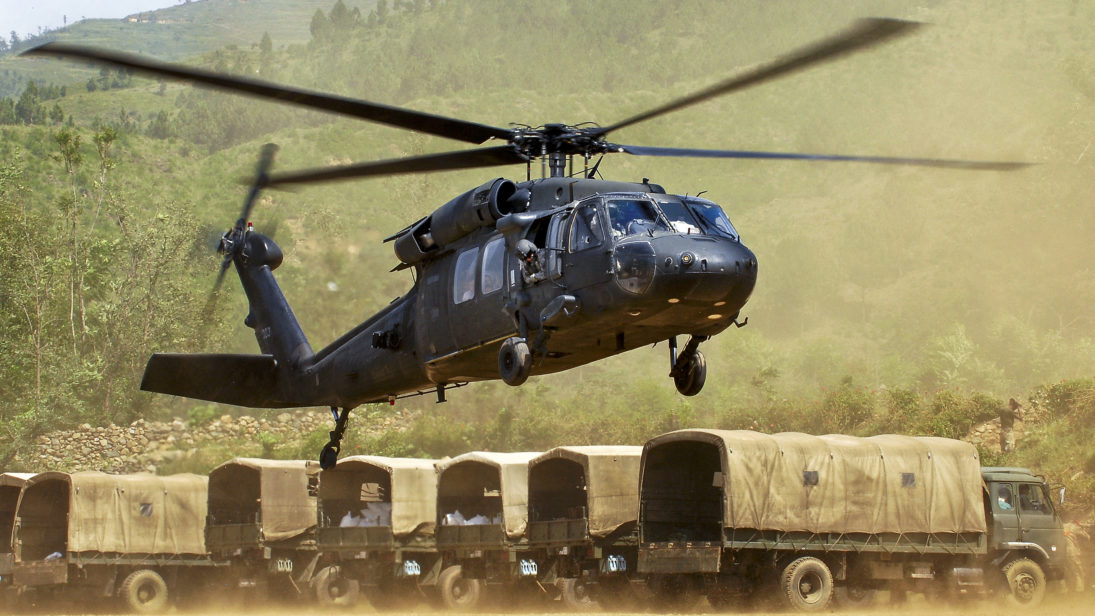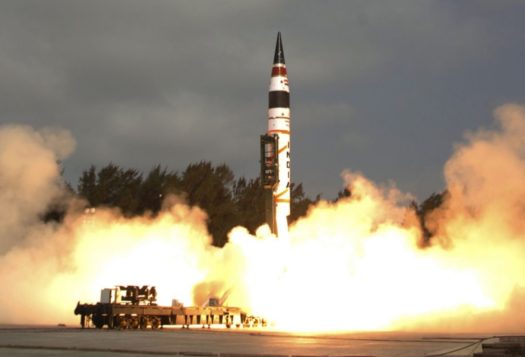
As millions of Pakistanis went to the polls to vote in Pakistan’s 2018 general election, a suicide bomb blast near a polling station in Quetta claimed 32 lives. The Islamic State-Khorasan Province (ISKP), a branch of the Islamic State that has been operating across South Asia since 2015, claimed responsibility for this incident. The attack was carried out days after the group took responsibility of another incident in Mastung, Balochistan that killed 131 people, including a candidate for the Balochistan Provincial Assembly, Siraj Raisani. These incidents amplify the fact that the ISKP poses a major security challenge, especially in Khyber Pakhtunkhwa and Balochistan, the Pakistani provinces bordering Afghanistan.
Given the group’s stronghold in the eastern Afghan province of Nangarhar, ISKP has posed a challenge to U.S. and Afghan forces since the group’s inception. The United States has not held back from applying maximum military power to combat ISKP’s presence in eastern Afghanistan, even dropping the Mother of All Bombs on ISKP hideouts in April of last year. These recent attacks carried out by ISKP in Pakistan demonstrate, however, that the United States and Pakistan could find a mutual enemy in the Islamic State in Afghanistan and Pakistan—and with it, an opportunity for cooperation. With this in mind, the United States should unite with Pakistan to defeat ISKP; such a move would make for a more effective counterterrorism strategy and a chance to improve fraught U.S.-Pakistan ties.
U.S.-Pakistan Ties on the Mend?
In an article for Pakistan Politico, Michael Kugelman, an expert on South Asia, contended that in a year of tense U.S.-Pakistan relations, the two can still find ways to work together so that the relationship survives. In the past months, Kugelman’s assessment has been validated by two factors.
These recent attacks carried out by ISKP in Pakistan demonstrate, however, that the United States and Pakistan could find a mutual enemy in the Islamic State in Afghanistan and Pakistan—and with it, an opportunity for cooperation.
First, despite estrangement and growing mistrust, Washington and Islamabad have used “tactical breathers” to reduce tensions. A month after angrily reacting to President Trump’s new South Asia policy, the then Prime Minister of Pakistan, Shahid Khaqan Abbasi, underscored the importance of a healthy U.S.-Pakistan relationship in order to bring about peace in the region during his visit to the United States for the 72nd session of the United Nations General Assembly. Later that fall, the Pakistani army, aided by U.S. intelligence, rescued an American-Canadian family in regions adjacent to the Afghanistan-Pakistan border. Pakistan was lauded over the successful operation and both countries agreed to enhance high-level interactions. The event indicated that despite U.S. concerns about Pakistan’s alleged support for militants, tactical-level cooperation was still happening. The United States, too, has made attempts to regain Islamabad’s trust by targeting Afghan terrorists who pose a threat to Pakistan’s security through drone strikes. Last year, a U.S. drone strike killed Umer Khorasani, the leader of the anti-Pakistan Jamaat-Ul-Ahrar. In addition, the leader of the Tehreek-e-Taliban Pakistan (TTP), Mullah Fazlullah, was killed in a joint Afghan-U.S. drone strike in eastern Afghanistan in June this year.
Second, military-to-military contact between the two countries is becoming increasingly normal once again. This month, the Commander of U.S. Central Command General Joseph Votel said that he maintains a robust relationship with his counterpart in Pakistan, General Qamar Javed Bajwa. General Votel also insisted that the United States is seeking “tactical and strategic cooperation” from Islamabad over the Afghan issue. The spokesman of the Pakistani military also expressed hope that military-to-military engagements will yield positive results. On July 31st, Pakistan’s Ambassador to the United States Ali Jahangir and U.S. Secretary of Defense James Mattis met in Washington, where they discussed regional security matters and vowed to restore ties. This air of optimism from military officials of the two countries is significant, as the military is the key player in the execution of Pakistan’s counterterrorism policy. Arguably, the military is the Pakistani institution with which the United States has most closely collaborated since Pakistan became America’s frontline ally after 9/11, with the vast majority of American aid to Pakistan being allocated for security-related needs.
Renewed goodwill between Washington and Islamabad has also aided a meaningful development in Afghanistan: the Eid ceasefire. This June, for the first time since 2001, the Afghan government and the Afghan Taliban observed a three-day ceasefire during Eid ul-Fitr. Pakistan’s role in arranging a truce was confirmed by Kabul’s envoy to Islamabad. Thus, despite their war of words over the past year, both states have managed to reduce tensions at strategic moments while moving towards a less turbulent relationship.

A Common Enemy
Both the United States and Pakistan have taken a role in combating ISKP where it is active in Afghanistan and Pakistan. Indeed, the Pakistan Army launched an operation codenamed “Khyber 4” in northern Pakistan’s Khyber district last year, in a bid to target groups that provide operational support to ISKP’s operations in the hinterlands of the tribal belt. This month-long operation, which concluded last August, wrested back 253 square kilometers of territory from the militants. Additionally, besides dropping the Mother of All Bombs on ISKP’s hideouts in Nangarhar province last year, the United States has repeatedly targeted the group and its leadership. Yet, despite eliminating scores of ISKP militants and leaders through air and ground operations, the United States has not been able to stop the outfit from carrying out lethal attacks in urban centers like Kabul.
The fact is that the two militaries are already working towards the same goal while fighting ISKP in their respective areas of operation.
These activities present an opportunity for collaboration between the United States and Pakistan that should not be missed: both countries can cooperate militarily to stem the growth of ISKP. The fact is that the two militaries are already working towards the same goal while fighting ISKP in their respective areas of operation. With the United States ramping up combat operations against ISKP in Afghanistan and Pakistan increasingly conducting intelligence-based operations to counter domestic terrorism, the mechanics of the cooperation could include carrying out complementary operations and sharing intelligence on ISKP presence in both Afghanistan and Pakistan. Islamabad, on its part, could carry out a series of targeted operations against ISKP, which has demonstrated their ability to wreak havoc in Balochistan and Khyber Pakhtunkhwa. By tackling ISKP in a concerted, collaborative effort, the United States and Pakistan can enhance mutual trust, something that would be useful in dealing with more thorny issues in their bilateral relations.
Conclusion
A fractured U.S.-Pakistan relationship is neither conducive to peace efforts in Afghanistan nor to either country’s counterterrorism objectives in South Asia. Despite their misgivings about each other, both countries have given priority to engagement at the military and diplomatic levels. The rise of ISKP has visibly challenged the United States’ war efforts in Afghanistan and is becoming a security challenge to Pakistan. By taking advantage of the mutual willingness to remain engaged, Washington and Islamabad can fight this common threat together, thereby bringing a level of normalcy to their strained ties.
***
Click here to read this article in Urdu.
Image 1: The U.S. Army via Flickr
Image 2: Noorullah Shirzada via Getty


